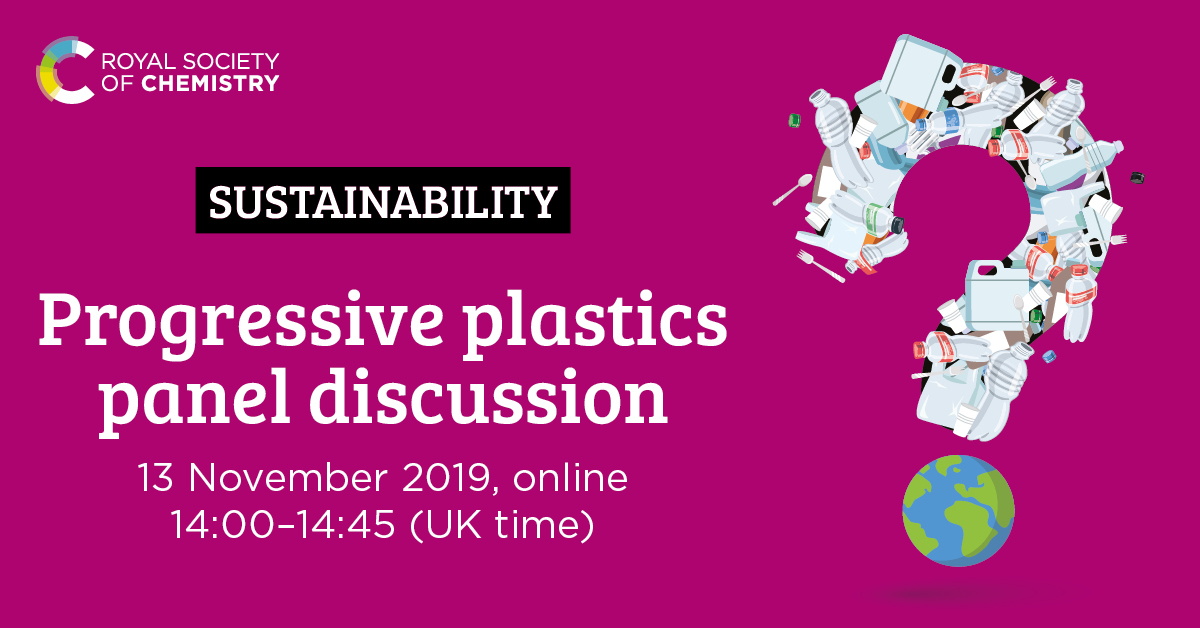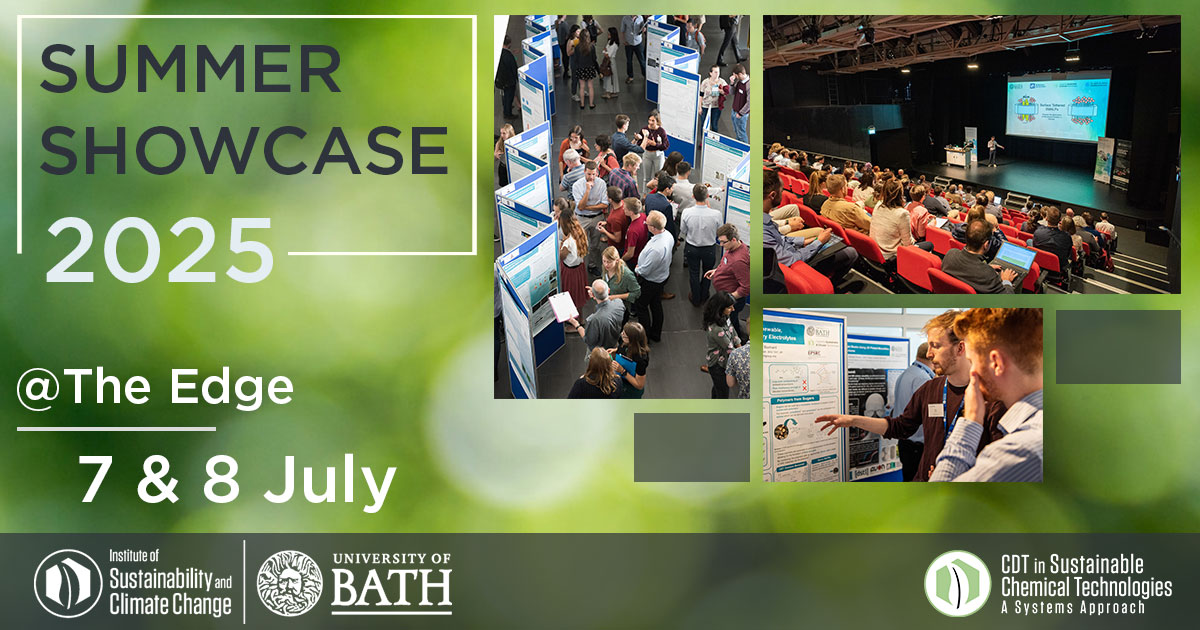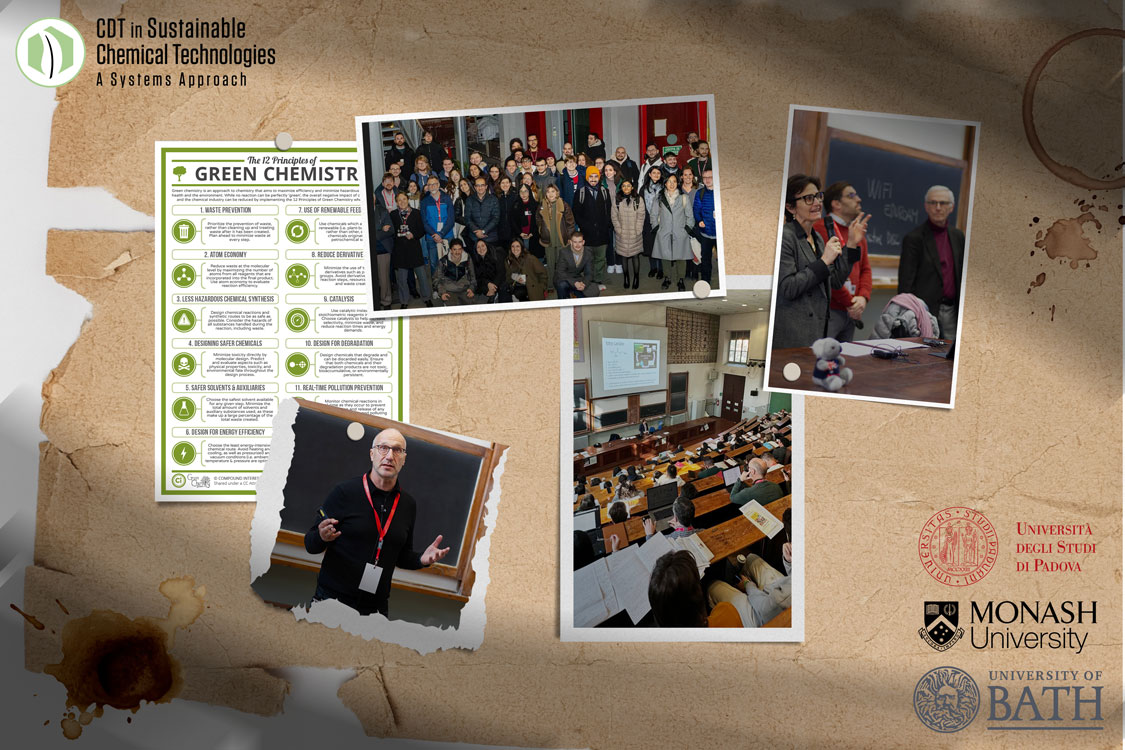
Cohort 24 at the PhD Winter School in Padua: A Week of Green Chemistry and Collaboration
In February, our CDT students took part in the Winter School & Symposium in Padua, an immersive week of learning, discussion, and networking, centred on Green Chemical Synthesis for the Circular Economy. With a mix of lectures, keynote speeches, and interactive sessions, the week offered invaluable insights into sustainability and innovation in chemistry.
Exploring New Research Perspectives
The breadth of topics covered during the Winter School was a highlight for many students. From catalysis to alternative solvent choices, the programme encouraged them to rethink existing methodologies and discover new approaches to sustainability in chemistry.
I found the introduction to mechanochemistry particularly interesting. I’ve been aware that it is a growing research area, but it was never touched on during my undergraduate course, so I never really encountered it. We had talks on greener solvent choices, but, in many ways, the greenest solvent choice is not to use one at all!
Edmund
Another thought-provoking talk came from keynote speaker Stephan Schunk, who explored AI in chemical synthesis. Since some of those on cohort 24 will be integrating aspects of machine learning into their projects, his insights into utilising AI-driven reactions proved especially relevant.
A key message from Prof. John Warner also resonated with attendees, reminding them that true innovation comes from thinking beyond traditional frameworks: “If decisions were made by committee, a giraffe would have never existed!”
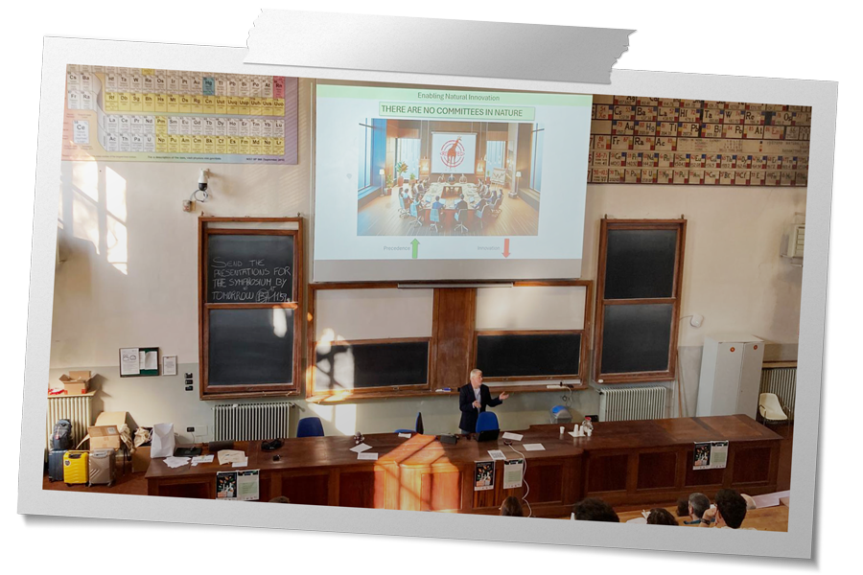
Students also gained insight into cutting-edge research and industrial applications, engaging with world-leading scientists throughout the week. Among the distinguished speakers were Prof. John Warner (Monash University), Prof. Gabriele Centi (University of Messina), Prof. Alexandr Simonov (Monash University), Florent Allais (AgroParisTech, France), Marco Fantin (University of Padova, Italy), Gabriella Fiorentino (ENEA, Italy), Khay Fong (Monash University, Australia), Felipe Garcia (Monash University, Australia), Matt Jones (University of Bath, UK), Paul Murray (Phosphonics / Catalysis Consulting), Andrea Robinson (Monash University, Australia), Kellie Tuck (Monash University, Australia), David Turner (Monash University, Australia), and Luigi Vaccaro (University of Perugia, Italy).
Applying New Knowledge to Research
Beyond the theoretical discussions, students were keen to apply what they learned to their own research projects. The Winter School has already sparked collaborations, with students in discussions about exploring a new research route with academics in Monash, ensuring plenty to keep them busy in the coming months.
Some of the methodology used in catalyst screening might be adapted using a more design-of-experiment (DoE) approach, and new insights have been gained on potential alternative value-added products for depolymerisation reactions.
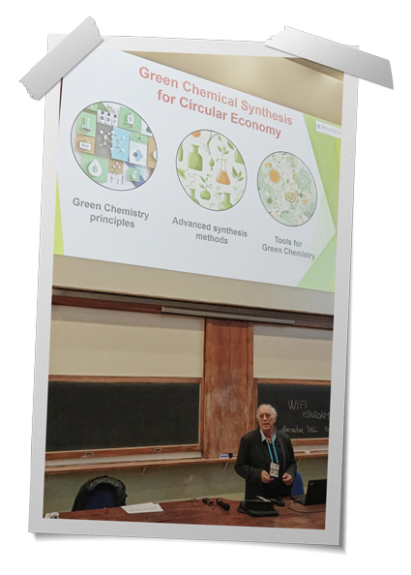
The Value of an Interdisciplinary Approach
One of the biggest takeaways from the Winter School was the sheer diversity of research approaches in green chemistry. Students appreciated the opportunity to step outside their own research areas and gain fresh perspectives. The range of topics covered highlighted the numerous approaches to making chemistry greener. Unlike conferences that often focus on specific disciplines, this event allowed students to interact with peers and researchers from different fields, which they found to be a big positive.
Building a Global Network
Beyond the lectures and research discussions, the Winter School offered a unique chance to connect with fellow PhD students and professionals from around the world. Some students pointed out how valuable it was to build these connections:
It was a great opportunity to hear from a mixture of academics and industry professionals about how they approach sustainability, and all the different ways in which the problem can be tackled. Socially, just chatting with PhD students from across the world was interesting, and the little trip to Venice was definitely a highlight!
Harvey
It was inspiring to hear leaders from the field of green chemistry and to hear what principles they follow. I will take forward their approaches to research and the ways in which some speakers were able to present their research in an engaging yet informative manner.
Outside of the lectures, a particular highlight of the trip was the afternoon we spent in Venice, which was beautiful.
We all also really enjoyed meeting fellow PhD students from Italy and Australia, sharing details of our PhD journeys so far.Dalia
Simply the fact we were able to talk to so many people from different backgrounds and come together as a community at a time when international collaboration looks increasingly uncertain. Our dinner on the Wednesday was particularly memorable – we managed to fit thirty-three of us around one dinner table!
Edmund
Many a conversation were shared over the suspiciously green drinks served up in the evenings – which, coincidentally, bore an alarming resemblance to some of the waste products being highlighted in the presentations…
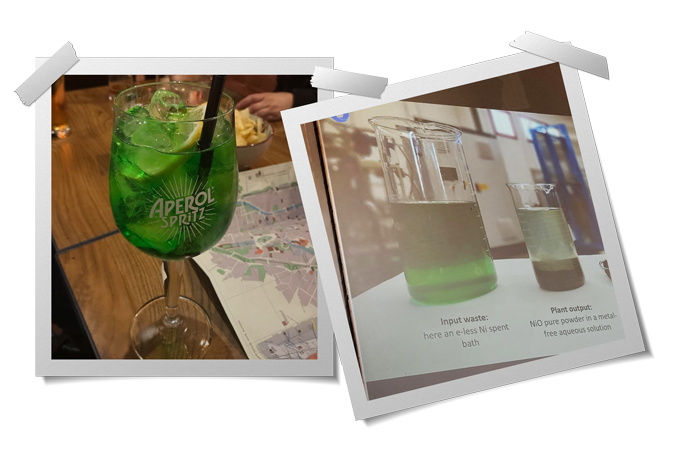
Flash Presentations
One of the highlights of the Scientific Symposium on Friday was the Flash Presentation session, where PhD candidates shared their research in concise and engaging talks. A big congratulations to our CDT student Edmund, who won the award for the best flash presentation!
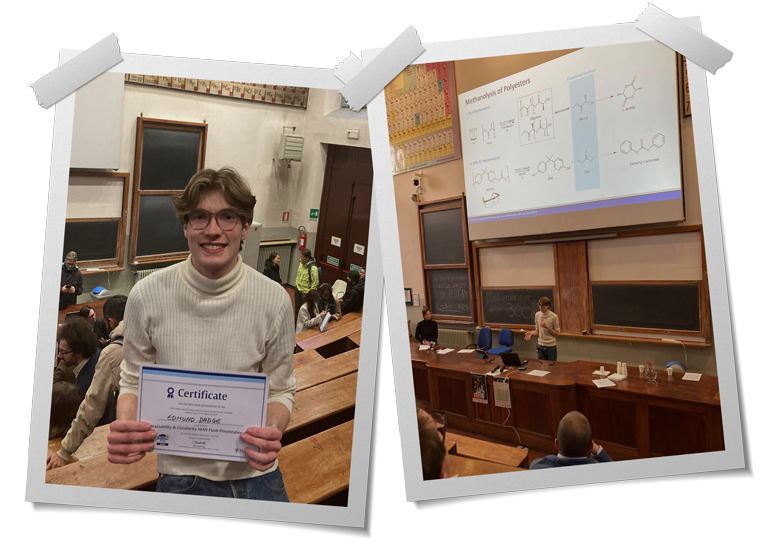
Looking Ahead
With new knowledge, fresh inspiration, and exciting collaborations in the works, the Winter School in Padua has been an enriching experience for our CDT students. As they return to their research, they bring with them not only scientific insights but also a strengthened network of peers and potential future collaborators.
A huge thank you to the organisers, speakers, and all those involved in making this week such a success. We look forward to seeing what comes next!
For future events and behind-the-scenes content, check out these Instagram accounts:




